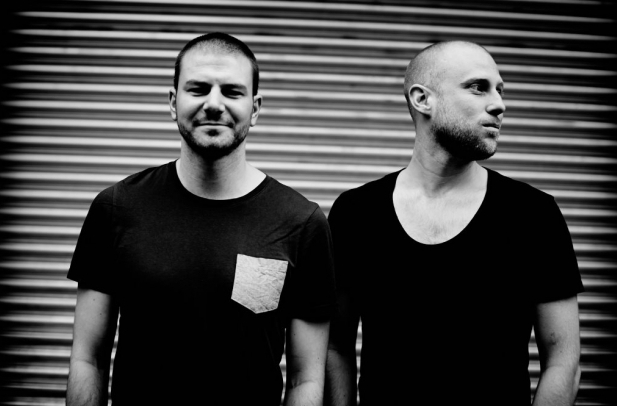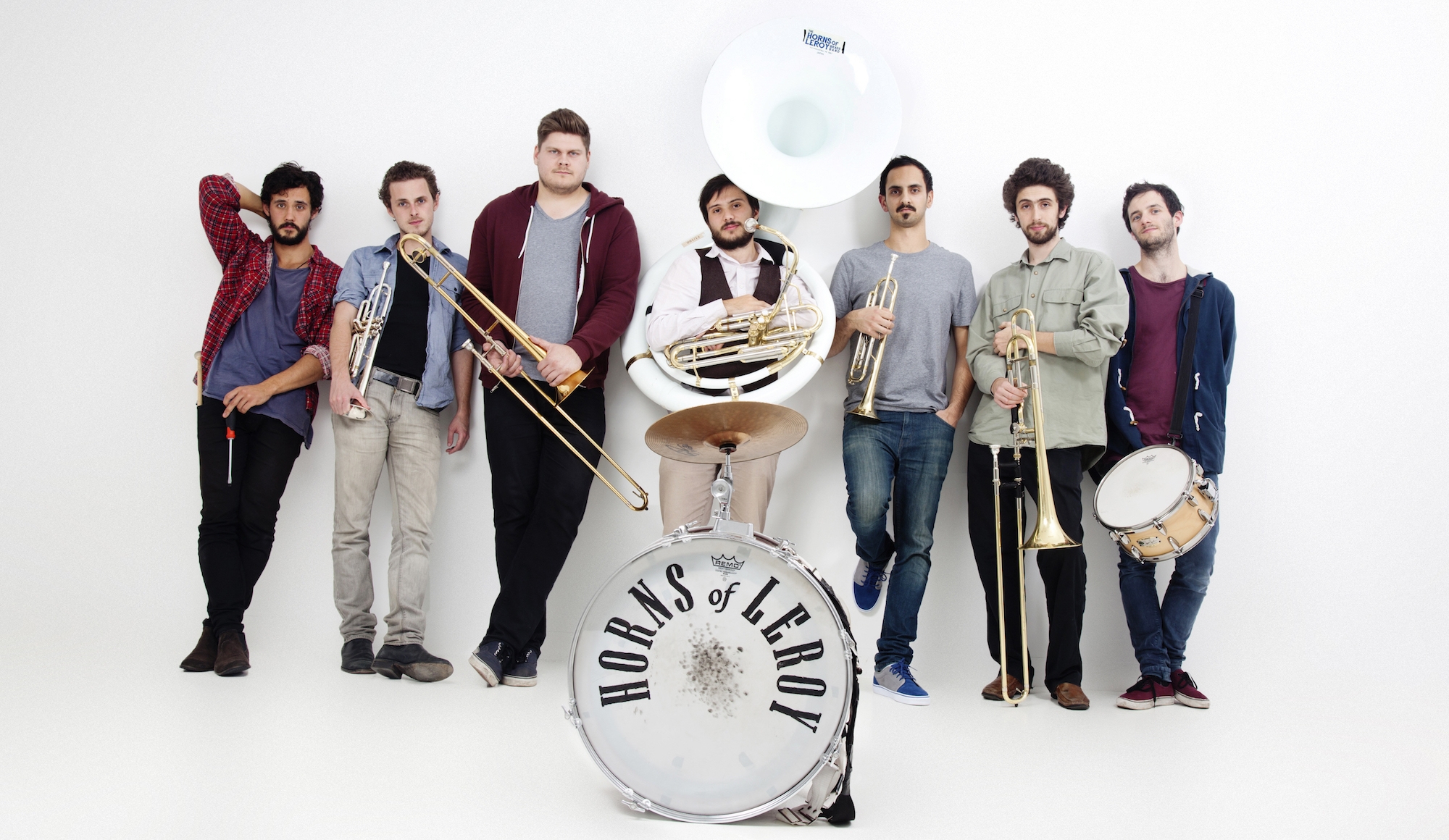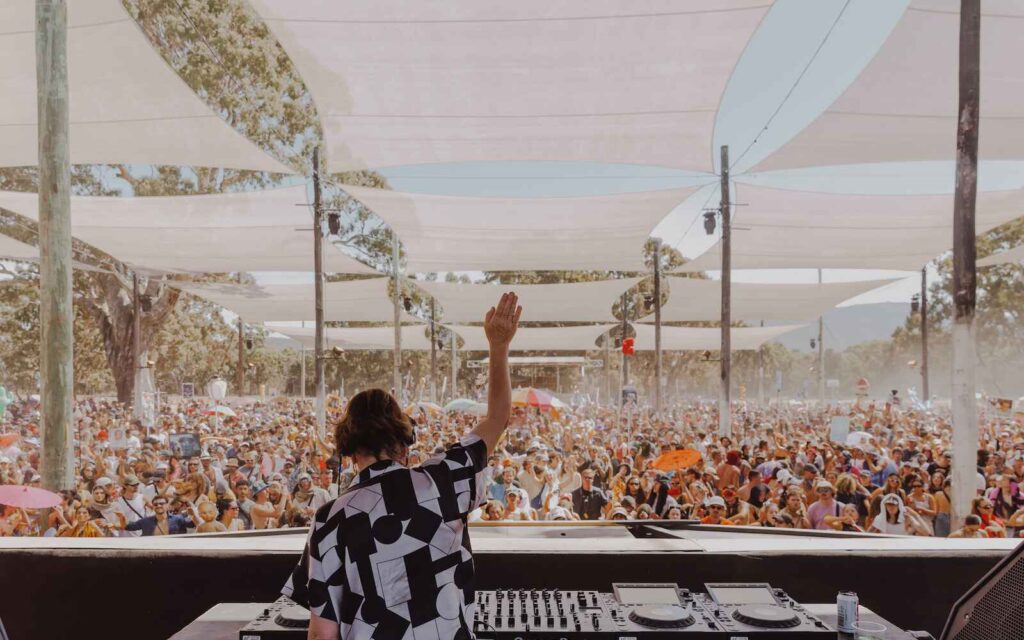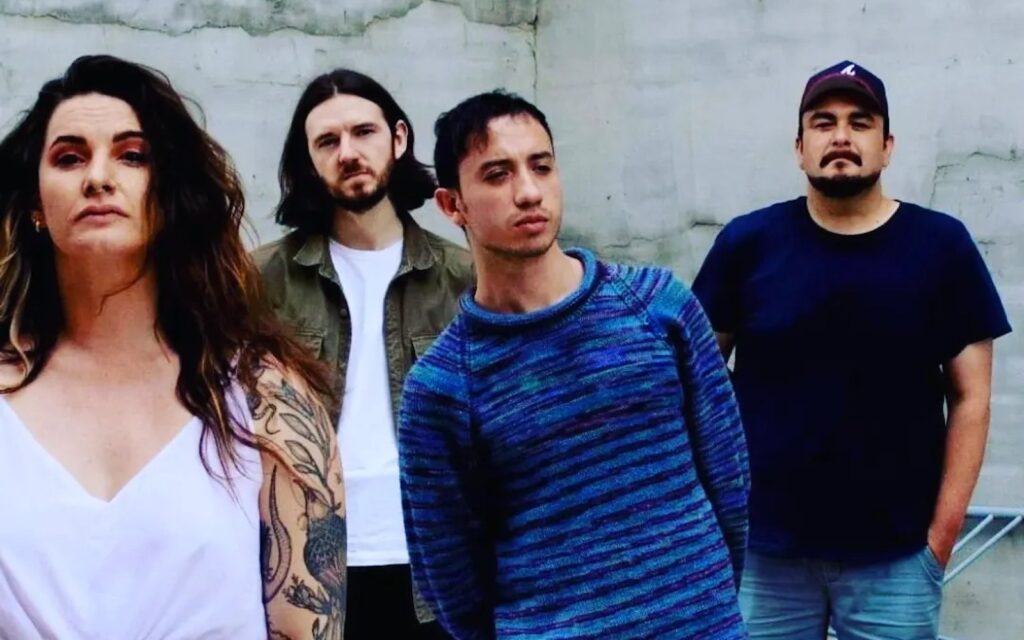After a chance meeting ten years ago, Audiojack have turned a fledgling partnership based on a clubbing encounter into one of the UK’s most prominent underground house acts and label owners. In between slaying at Piknic Electronik, they found some time to talk about what makes them tick.
BEAT: In regards to Gruuv – How picky are you as to who you will release? Do you seek people out or do they always come to you?
We started Gruuv partly out of frustration at the lack of opportunity for up and coming artists to have a solid release platform, with good remixes on offer, targeted promotion, some vinyl releases and a fair deal. We’re big fans of equal partnerships, so when some record labels moved to 70/30 deals in the labels favour – or worse – coupled with large deductible expenses, we were inspired to offer a fairer alternative to artists.
Whilst we’ve always been excited about helping up and coming producers, our roster has grown organically over the last five years so whilst we’ll always have our ears to the ground when it comes to new artists the time we have available to focus on them has diminished somewhat. We plan to release around 15-20 EPs each year, and when you consider that 1 or 2 of these will be our own Audiojack EPs, then EPs from our regular label artists such as Emanuel Satie, David Mayer, Marc Romboy, Dachshund, Gorge, Paul C & Paolo Martini, Hugo, David Pher, A1 Bassline, Hermanez, Spirit Catcher, Black Loops, it’s easy to see how quickly the release slots get filled up.
To answer your first question though, we’re very picky with the music we choose to release. It’s important to have quality consistency on the label. As DJs it’s important to have labels you can rely on. Pretty much all our label decisions have come from either being DJs or producers, and our previous frustrations with the system, or ways we’ve seen that we could try to improve it.
Any vocalists you’d like to work with that you haven’t yet?
There are loads of amazing vocalists out there that we’d love to work with but at the moment our music doesn’t really require the kind of vocals you’d want from a professional singer, they’re more fucked up glitchy ones and you can get almost anyone to do that and then put some weird effects on it. We’ve had some amazing opportunities working with vocalists in the past though like Brian Ferry, Karl Hyde (Underworld), Nancy Whang (LCD Soundsystem), Yukimi Nagano (Little Dragon) and I’m sure when our music is right for real vocals again we’ll be looking for some more world class lungs to draw from.
What influence have you had on electronic music? Are there any trends/movements that you can see yourselves in?
Kanye would be straight in there with this one wouldn’t he? Whenever someone creates something and shares it with others, they are influenced by it. It might be so subtle it’s unnoticed or it might inspire someone directly to go and create themselves. Our music will have influenced others but not to a tangible degree where we can say we were part of a movement or trend; sure we’ve got a ‘sound’ but haven’t innovated a new genre or anything. We’re still relatively young though, so we’ll have a bash.
Musically, what have you learnt about yourselves personally over the last ten successful years?
Musically we’ve learned that it’s always better to do your own thing rather than follow what’s going on in a current trend, because you can’t stand out if you fit in. Another important factor is that it’s easy to throw too many elements into a track and over-egg the pudding; if you look back at the tracks that have been successful for us like Robot, Get Serious, No Equal Sides, Plastic Dreams, Vibrate etc., they’ve all been very simple tracks that focus on a few key elements. Less is more.
When you’re not listening to electronic music, what if anything gets your respective toes tapping?
Jamie: I like listening to anything from old hip hop, rare groove and soul to proggresive rock, punk or classical music – as long as it’s interesting.
Rich: I often think about music more in moods than genres. I have cooking music, partying music, thinking music, driving music, etc. If I’m not doing house and techno I’m often looking to create a mood rather than ‘listen’ to music, so the likes of João Gilberto, Duke Ellington, Fela Kuti, Nightmares on Wax are regularly on my playlist.
Would you like to score film? If so, any directors you can imagine composing for/working with?
Absolutely, it’s something that would be great to do in the future and although there are many directors we really like, the script would be more important. Jamie actually recently made a score to a hypothetical film using other peoples music, sound effects and so on that represents the story of an expedition from earth, travelling through space to another planet, meeting an alien civilisation and then making the journey back to earth. There are no beats involved, it’s all classical and ambient music with content from Steve Reich, Orbital, The Orb etc. It’s not finished yet but we may put it out at some point.
Is there anything you’ve been longing to try out that you haven’t yet?
Yes. We’ve been meaning to create a live show for the last – god knows how long – but never got around to it until now. We’ve started building it and plan to rehearse all summer until it’s up to scratch. It’s definitely not going to be two guys clicking mouse buttons, we’re building a completely live environment where we will he able to improvise fully and no two shows will exactly alike. We’re really excited about it.
Some DJs seem to have very long careers, which is almost (but not quite) counter-intuitive, given that audiences are usually so young. Are you two going to keep spinning the decks til you drop dead?
People grow out of clubbing for various reasons such as having kids, work responsibilities, not being able to bounce out of bed the next morning the way you could in your twenties – which is maybe why the audiences remain young. Coming from a clubbing background, we thought we’d want to do something different by our forties because it might feel weird being in a club with loads of kids, but look now at Laurent Garnier, Carl Cox, Francois K, Mr. G etc; smashing it well into their fifties.
From the perspective of the DJ, the passion for collecting and presenting music to people doesn’t dwindle with age and as we’ve witnessed the scene mature in the last 20 years you see these DJs carrying on regardless of their age and it being of no consequences to the people on the dance floor as long as they’re being entertained by the music. From a DJ perspective, we’ve been DJing for 20 years now but still feel we have a huge amount to learn and improve on. In lots of places around the world you find special parties where age is of no consequence on the dance floor either and you get people from 17 to 70 all partying together. In summary, we’ll keep going until we’re bored or dead.
What are the most positive trends in electronic music these days? What are the strongest, and what do you think will endure?
It’s a very broad question that can be answered in a number of ways depending how you look at it. One aspect is that when a particular genre of music has a period of time in the sun, the popularity extends it’s reach into the mainstream and draws in a new and wider audience. If you take the UK garage revival in 2013 for example, that spawned acts like Disclosure who now have a large mainstream audience and many of them will have ventured into dance music clubs to hear more music like that. During these times, clubs are fuller and it’s easier for promoters to throw parties and DJs to get booked. These trends have relatively short lifespans of inflated popularity though and most of the new fans will go back to what they were doing before and the genres go back to having a small pocket of people into them. On the other hand you have straight up house and techno for example which always maintain a consistency, and will endure as long as people have feet to dance with. As for the most important trends or genres in electronic music, that’s completely subjective for the individual depending on taste. Long and short – it’s all house music. Unless it’s techno. 😉
Is there any down-side to your lifestyle?
Tour schedules can sometimes be tough if you don’t get chance to sleep enough but as long as you’re earning enough to live on its a dream lifestyle. We love making music, DJing, travelling meeting people on the road, there’s really no room to complain.
“Re-inventing yourselves in an organic manner” – “keeping things fresh”- what do these phrases really mean? In what ways do you challenge yourselves?
The vast amount of competition in the industry now means that you can’t just keep churning out tracks that sound the same all the time because you’ll quickly be on the scrap heap when people get bored. To keep people interested you need to evolve and adapt to keep things fresh but you have to believe in what you’re doing. You can’t just say fuck it I’m going to start making techno if you’re not into techno because the music will be devoid of soul. That’s what re-inventing yourself organically means, adapting within your tastes and skill sets so you can still put your personality and soul into it.
“Electronic music has no heart or soul.” Refute in your own words.
Whoever said that is narrow minded because any music that someone has created with love and passion has heart and soul in it regardless of it’s genre or means of creation. That’s art. The music that has no heart and soul is the music created by the head and not the heart. That sounds a little clichéd but it’s so common for people in all kinds of music across the board to sit there and think, what do I need to put in this song to make it popular? And now so much current pop music is made by using statistical analysis to determine what will make the songs popular and they all end up sounding the same so people can make money. You could argue these tracks are soulless because they didn’t come from the heart or soul, they came from the head, where external factors such as popularity rule the roost.







